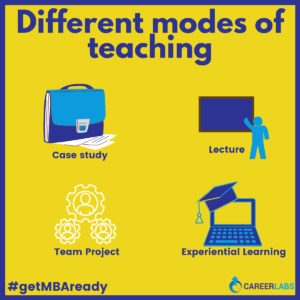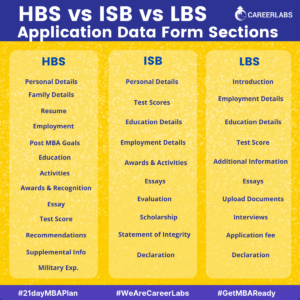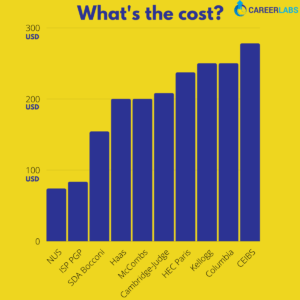MBA application- there’s more? Yes, you need letters of recommendations – perfect ones at that!
Typically, recommenders for B-School would be people with whom you have worked closely, especially those in a direct supervisory role.
Imagine this- A nice AdCom member is sipping on their Earl Grey tea, sitting in their cosy office that overlooks the river and are giving your application a read. Through the resume and the essays, they will get a sense of all your accomplisments and may also know your story. But who’s to support all this?
Now enters the recommender with the Letter of Recommendation (LoR)!<Drum roll!>
The LoR provides the evidence, supports your claims with examples and gives reassurance to the AdCom.
So, the letters of recommendation (some programs need 2) carry a lot of weight in the MBA application.
The LoR horror stories
In an Indian setting (or anywhere for that matter), if you tell your boss about your MBA plans, it might not always go the way you want.
Many of my clients navigate a web of office politics to secure their recommendations.A client told me today- ” I don’t think I can ask my boss for a recommendation letter. He hasn’t done an MBA and frankly, I think he is jealous.”
That promotion that was rightfully yours might be withheld. A client lamented- ” She agreed but after I disclosed my MBA plans, I have been sidelined”.
Worse, you might get unfavourable or lacklustre (or god forbid, partially answered three-line) recommendations. From a reapplicant- ” I am changing my recommender this time. My CEO was extremely busy. I don’t think he had the time to do a good job”.
Which is why, you can always keep ex-bosses as back-ups (hopefully you didn’t burn any bridges). One suggestion is make sure that the recommenders were from your recent past (less than 3 years).
Getting the perfect Letters of Recommendation
Get the recommenders on your side.
Put yourselves in the recommender’s shoes.
Would they give you the time necessary? LoRs can take anywhere between 1-4 hours per MBA application. The first LoR takes the longest time. While the common LoR from GMAC is accpeted by many, still some B-Schools have their own formats.
How has the person responded when you had asked favors before? Given the stakes, before you approach your recommender, evaluate your relationship with them. Have they been timely? Did you have to follow up much or hand-hold a lot? Will they deliver?
Are they happy that you are leaving? Bad question. Chances are if you an A player, your boss won’t be happy.
Are they happy about your growth and ambition? Right question! Have they helped you seek opportunities for growth within and outside of your role? Have they mentored you? If they are your true well-wisher, then they will do everything to give you a good LoR.
Have you promised to undertake some key projects in your company? Depending on your relationship with the recommender and the nature of your role, you may approach your recommender as early as 3-6 months before the applications. If you are in a critical role, the earlier the better, as then you are giving your boss time for a replacement and playing a big role in succession planning (a big aspect of leadership).
In fact, some companies may expect and want you to go for the MBA. If the recommenders already have an MBA themselves, it is easier to get a LoR as they already know about the importance of it and have a sense of the expectations (hopefully, they don’t botch the execution).
Also, how you ask for the letters is a big deal! Give your recommenders some heads-up. I would advise an 1-1 with your recommender where you can probably discuss your MBA plans (and also succession plans clearly). Use the CareerLabs “The Ultimate Guide to a Letter of Recommendation ( LOR) for MBA/MIM”. With this, no recommender has to request you for a draft (link in the comment).
The future of the Letter of Recommendation (LoR)
Even now, some B-Schools need recommendation letters only after you pass the initial screening process. But then there are those others with many formats and requirements that costs time. This is why some recommenders may not help you for all the 10 B-Schools to which you to apply (another reason why selecting the right B-Schools and limiting the # of B-schools to which you apply is soooooooooo important).

Maybe 5 years down the line, B-Schools might directly take in recommendations from LinkedIn profiles of prospective applicants (in a secure manner) or get video responses from them. This will ensure so much transparency and discourage applicants from influencing the LoRs a lot.
The perfect MBA LoR
Before I go, one other way to get a perfect LoR is to not write one yourself. Give all supporting documents & support to the recommenders, don’t write it.












